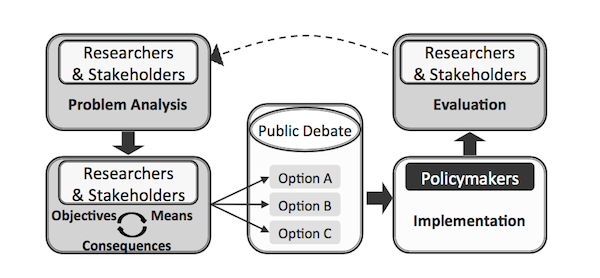Climate protection and sustainable development pose complex challenges for politics and society. To foster rational and democratic decision-making under these circumstances, continuous communication is needed between society, science and politics. It is here that assessment reports become important. The goal is to document reliable, understandable and policy-relevant summaries of the current state of scientific knowledge, yet without steering toward any one decision. By showing and clarifying the available options in political decision-making, assessment reports also provide a solid basis for broad public debate on issues with far-reaching implications.

The following case in point will illustrate this approach: The international community has set itself the goal to limit the rise of the global average temperature. Yet, achieving this goal at an acceptable economic cost may require the use of biomass at an unprecedented scale. This, in turn, could have a number of problematic consequences, including a rise in global emissions due to increased deforestation, increasing food prices and the loss of biodiversity. These externalities then call on politicians, and society as a whole, to reevaluate the means thus far implemented or even to justify the political objectives anew.
With regard to assessment reports, the MCC adheres to the “pragmatic-enlightened model”, which emphasizes the importance of the revision and reevaluation of goals within the social learning process concerning policy instruments. To avoid or at least minimize disastrous conflicts, it may be necessary to seek new means. Instead of narrowing the public debate, science should explore new avenues and map out various courses of action for society.





